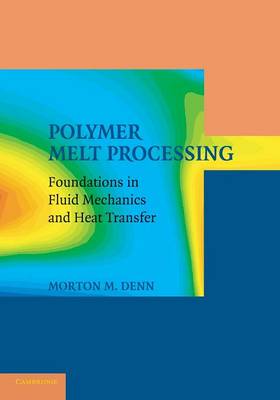Cambridge Series in Chemical Engineering
2 total works
'Chemical engineering is the field of applied science that employs physical, chemical, and biological rate processes for the betterment of humanity'. This opening sentence of Chapter 1 has been the underlying paradigm of chemical engineering. Chemical Engineering: An Introduction is designed to enable the student to explore the activities in which a modern chemical engineer is involved by focusing on mass and energy balances in liquid-phase processes. Problems explored include the design of a feedback level controller, membrane separation, hemodialysis, optimal design of a process with chemical reaction and separation, washout in a bioreactor, kinetic and mass transfer limits in a two-phase reactor, and the use of the membrane reactor to overcome equilibrium limits on conversion. Mathematics is employed as a language at the most elementary level. Professor Morton M. Denn incorporates design meaningfully; the design and analysis problems are realistic in format and scope.
Most of the shaping in the manufacture of polymeric objects is carried out in the melt state, as it is a substantial part of the physical property development. Melt processing involves an interplay between fluid mechanics and heat transfer in rheologically complex liquids, and taken as a whole it is a nice example of the importance of coupled transport processes. This book is on the underlying foundations of polymer melt processing, which can be derived from relatively straightforward ideas in fluid mechanics and heat transfer; the level is that of an advanced undergraduate or beginning graduate course, and the material can serve as the text for a course in polymer processing or for a second course in transport processes.

